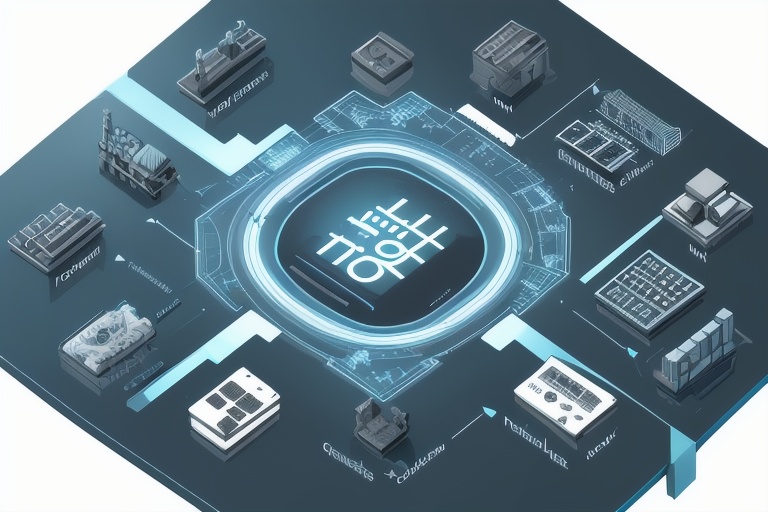Artificial intelligence (AI) has swiftly transitioned from a budding technological dream to an encapsulating reality that permeates countless aspects of daily life. Whether through the convenience of virtual assistants, the innovation of self-driving cars, or the responsiveness of chatbots, AI has showcased its ability to perform tasks that once solely relied upon the nuance of human intellect. The ongoing evolution of AI has ignited a pertinent conversation about its capabilities in comparison to human intelligence, stirring contemplations and inquiries about whether AI could one day supplant the intelligence of humans. This discourse centers on understanding the dissimilarities and inherent qualities of both AI and human thought processes.
Artificial intelligence (AI) has swiftly transitioned from a budding technological dream to an encapsulating reality that permeates countless aspects of daily life. Whether through the convenience of virtual assistants, the innovation of self-driving cars, or the responsiveness of chatbots, AI has showcased its ability to perform tasks that once solely relied upon the nuance of human intellect. The ongoing evolution of AI has ignited a pertinent conversation about its capabilities in comparison to human intelligence, stirring contemplations and inquiries about whether AI could one day supplant the intelligence of humans. This discourse centers on understanding the dissimilarities and inherent qualities of both AI and human thought processes.
Defining AI and Human Intelligence
Before we venture into their contrasts and intersections, it's essential to recognize what we mean by AI and human intelligence. AI encompasses a specialized segment of data science dedicated to creating intelligent machinery capable of emulating tasks that usually require the diverse capabilities of human thought. These machines are engineered to learn from experiences, assimilate their environments, and make decisions suited to their learned parameters. Human intelligence, however, is the broad spectrum of our mental faculties, giving us the capacity to learn, cogitate, problem-solve, identify patterns, and communicate complexities.
The Contrast in Nature and Function
Evaluating the dissimilarities between AI and human intelligence, one notable aspect is how each adapts within new environments. Human intellect thrives on an array of cognitive processes, ever-growing and adapting, while AI systems focus on replicating human actions and behaviors within predefined limits. The human brain works in an illustrative analog fashion, capable of flexibility and nuance, whereas AI operates on a distinctly digital plane, demanding precise data to function.
The mechanisms driving AI and human intelligence differ markedly. Humans leverage the brain's colossal computing power, nuanced memory, and intangible thinking capabilities. In contrast, AI depends heavily on vast swathes of data and algorithms explicitly programmed into their systems. Human intelligence embraces complexity and demands time to process and understand multifaceted challenges; AI seeks accuracy through precise inputs and algorithmic efficiency but does not engage in reflective understanding.
The Expanse of Learning Power
Human learning is characterized by experiences, past incidences, and a resilience that comes with trial and error. Intellect, influenced by conscious thought and unique behavioral patterns, is the cornerstone of human development. On the other side of the spectrum, AI systems can absorb an immense array of data and refine their operations through continuous training. Still, they lack the spontaneous, imaginative thought process and nuanced problem-solving skills emblematic of humans. AI machinery may excel in particular realms, yet it often requires years to adapt these competencies to varied applications.
The Human Factor in AI
Crucially, AI's optimal performance is irrevocably tethered to human contributions. The aspects of human intuition, emotions, self-awareness, passion, and motivation are inherently human traits that empower complex cognitive tasks. These attributes confer an undeniable advantage to human intelligence over AI.
The Future Interplay of AI and Human Intelligence
Looking ahead, the trajectory of AI is one of relentless innovation and deeper integration into numerous industries. Nonetheless, the supposition that it could wholly supplant human intelligence appears premature. AI enhances human capacities and simplifies laborious tasks, but it acts as an auxiliary to human brilliance rather than its replacement. As we advance down the AI path, it becomes increasingly pertinent to cherish the irreplaceable qualities of human cognition.
Symbiosis, Not Substitution
This persistent advancement prompts us to recognize the essential symbiosis of AI and human intelligence. AI multitasks, processes, and analyzes, while human intelligence injects creativity, critical thinking, and moral insight necessary for AI’s conscientious growth. AI’s true potential unfolds through human interaction and collaboration.
In juxtaposing AI and human intelligence, their differences emerge starkly. AI, despite its astonishing strides in technology such as generative AI and machine learning, falls short of emulating the depth and novelty of the human mind. Human adaptability, intuition, and emotive depth ensure our influential dominance over AI systems. Yet, acknowledging the mutualistic nexus that AI shares with human comprehension is paramount. AI magnifies our abilities and streamlines procedures, with human intellect infusing the indispensable elements of creativity and critical judgment.
As AI perpetually integrates into varied facets of industry and life, the likelihood that it will entirely replace human intellect grows increasingly remote. Instead, AI will lean on human intervention and partnership to actualize its prospective zenith. The prospective era of AI is one that champions collaboration, leveraging the strength of both AI and human understanding to propel breakthroughs and advancements in programming, AI, and machine learning domains.
Stay tuned as we delve more deeply into the AI odyssey in subsequent articles, where we will unpack the potential impact AI wields over society and the ethical deliberations that attend its progression and usage. We stand on the precipice of a bold AI-driven epoch, one replete with revelations and transformations that will indelibly reshape our lives.
Information for this article was gathered from the following source.




